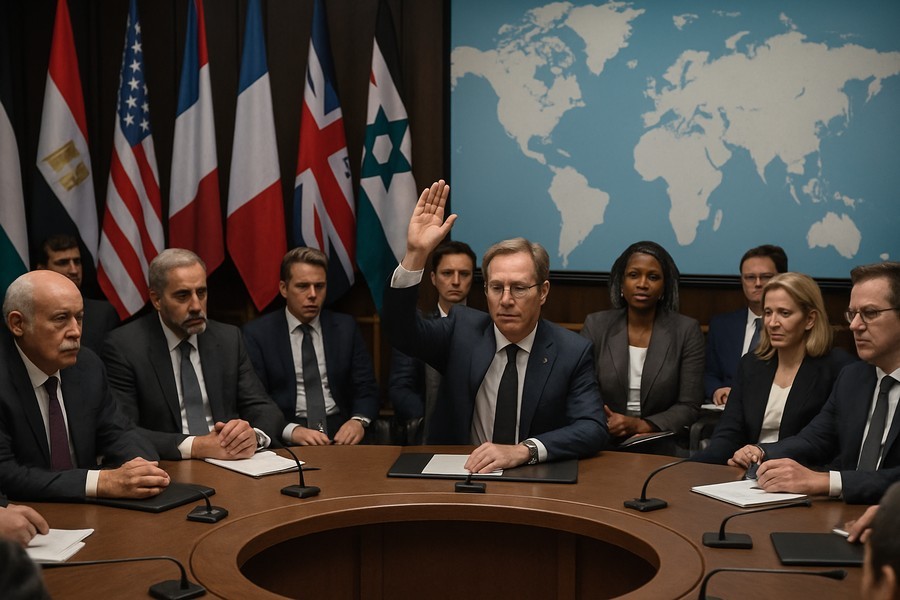
US Blocks UN Proposal Calling for Ceasefire and Hostage Release in Gaza
The US once more used its veto power to block a draft resolution at the United Nations Security Council. The resolution called for an immediate ceasefire in Gaza and the release of hostages. The US argued that the resolution fell short of condemning Hamas.
All the other 14 members of the powerful global body supported the proposal. They also acknowledged the severe humanitarian crisis in Gaza and urged Israel to lift all aid restrictions for the 2.1 million Palestinians residing in the region.
A senior US policy advisor expressed that the country's rejection of the resolution was expected. She claimed that the resolution failed to criticize Hamas, did not acknowledge Israel's right to self-defense, and erroneously validated false narratives that favored Hamas.
International Isolation for the US and Israel
The rejection of the resolution underscores the growing international isolation of the US and Israel concerning the ongoing conflict in Gaza, which has lasted nearly two years. This comes ahead of the annual global leaders' meet at the UN General Assembly, where the Gaza issue will be a crucial topic. Major US allies are expected to recognize an independent Palestinian state, a move strongly opposed by Israel and the US.
The proposed resolution linked the cessation of hostilities with the release of hostages. It went beyond prior drafts to emphasize the escalating plight of Palestinian civilians.
Algeria, a lead proponent of the resolution, expressed its disappointment at yet another unsuccessful UN Security Council action for Gaza. Algeria apologized to Palestinians for not doing enough to protect civilians.
Despite the unsuccessful passage of the resolution, Algeria's representative at the UN praised the 14 members who voiced their support for the resolution. He commended them for acting conscientiously and in the interests of international public opinion.
Terms of the UN Resolution
The draft resolution repeated demands from previous versions. It called for the release of all hostages held by Hamas and other militant groups following an unexpected attack in southern Israel that triggered the Gaza war.
The US had previously opposed similar resolutions, arguing that the demands, including a ceasefire, were not directly tied to the unconditional release of hostages, and would only encourage Hamas militants.
The new resolution voiced "deep alarm" after a recent report by a leading global authority on food crises indicated that Gaza City is in the grip of famine. Without a ceasefire and an end to aid restrictions, the famine is expected to spread across the territory.
Israeli forces have launched a new ground offensive in Gaza City. This latest operation is likely to further exacerbate the conflict in the Middle East and push any chances of a ceasefire further away.
Recent UN Stance on Gaza
On the same day, an independent team of experts commissioned by the UN Human Rights Council reported that Israel is perpetrating genocide in Gaza. They called on the international community to halt it and take measures to penalize those responsible.
Overwhelming support was shown last week at the UN General Assembly for a two-state resolution to the Israel-Palestinian conflict. The assembly also encouraged Israel to commit to a Palestinian state.
The US's veto of the resolution occurs as nearly half of Americans believe that Israel's military response in Gaza has become excessively harsh, according to a recent public opinion survey. This represents an increase from a few months ago when 40% voiced similar concerns.
